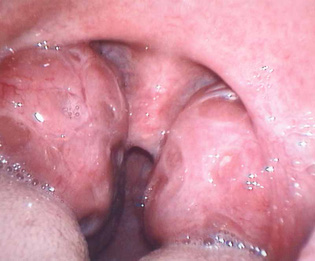Chronic Tonsilitis

The tonsils are a part of the immune system, which is the mechanism of antibody production. Up to the age of 4, it is believed that they play an important role in building the immune «memory system», which helps the child’s defence mechanism to get familiar with the various micro-organisms in the environment, and «remembers» the enemy, by producing antibodies ready to strike back at a second attack of the same antigen. From 4 to 12 years their contribution gradually decreases. In adulthood, we believe that the tonsils do not have a significant role in immunity.
Often, the tonsils are infected by viruses or bacteria, which cause an acute inflammation known as acute tonsillitis, which is characterized by purulent smear on the throat, fever and pain. If medical treatment fails to adequately cure the condition and the infectious material is not eradicated from the tonsilar tissue, then chronic tonsillitis may develop.
Chronic Tonsillitis usually causes enlargement of the tonsils (image) and recurrent infectious episodes, and apart from the apparent nuisance and long-lasting discomfort, it can be complicated by severe rheumatic damage to the heart and kidneys. In chronic tonsillitis, possible indication for removal of the tonsils (tonsillectomy) will be discussed with your doctor.